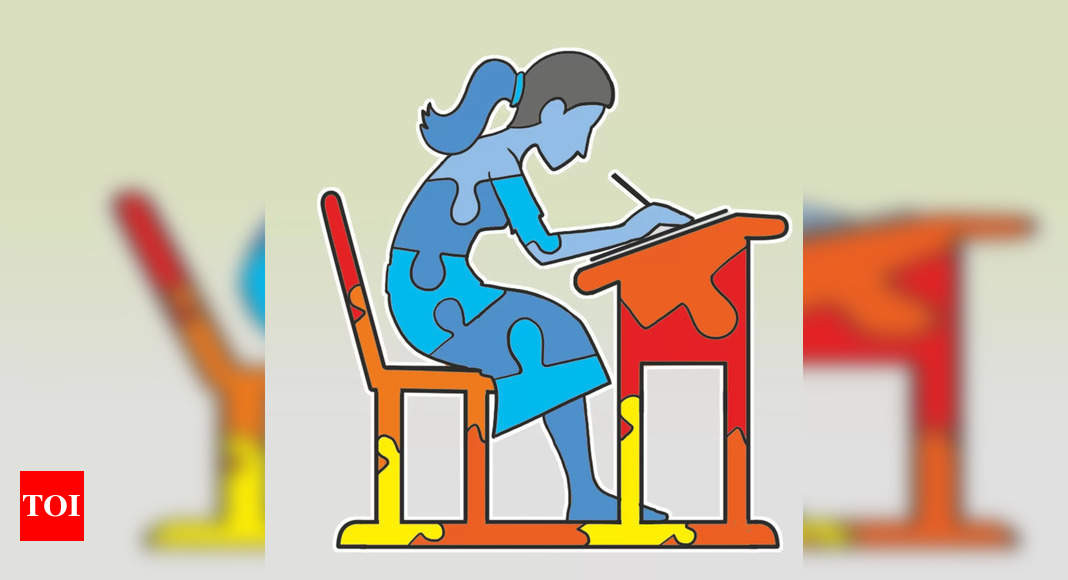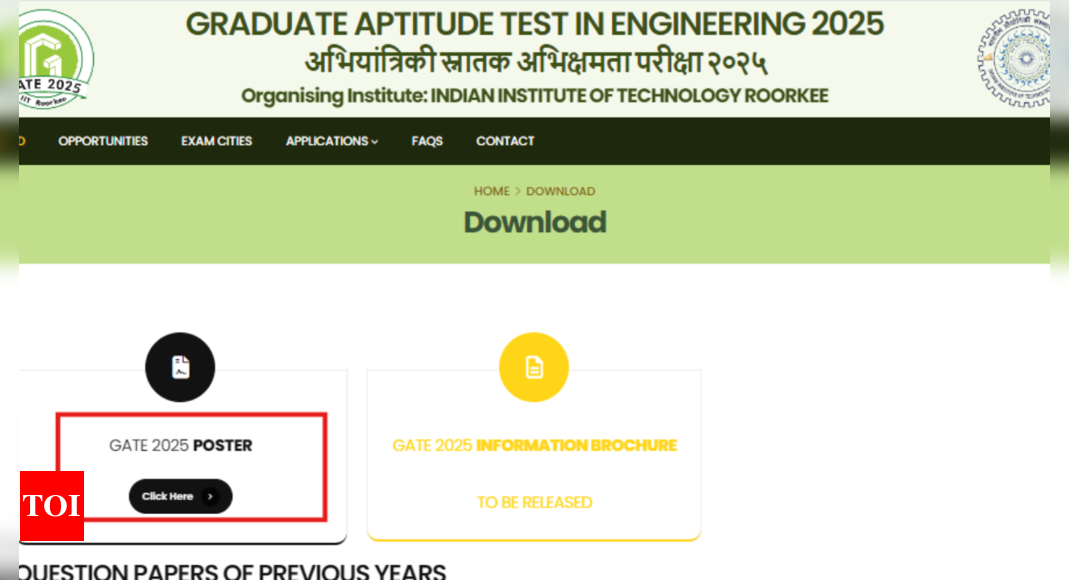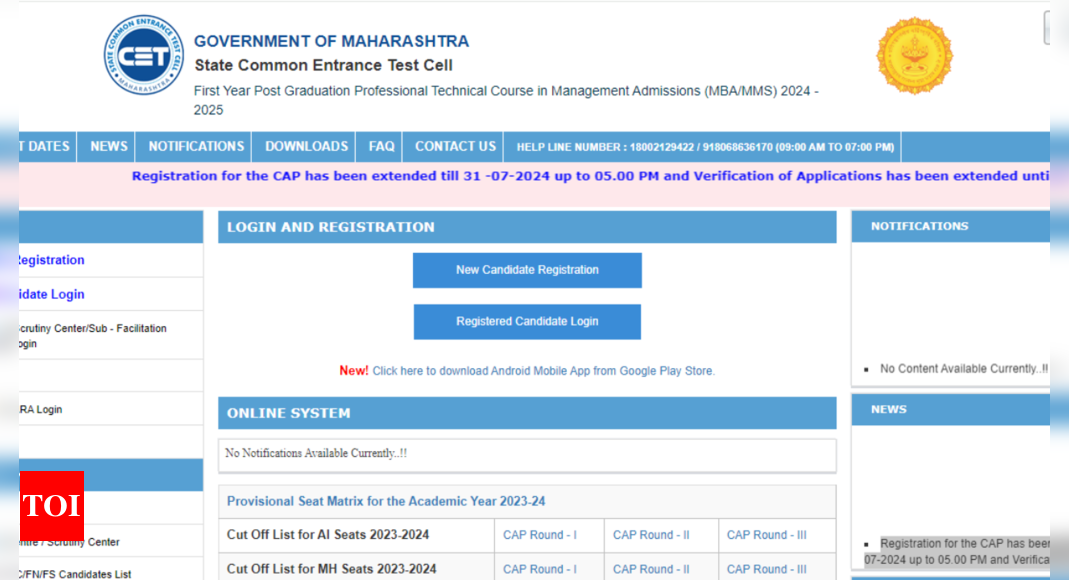NEW DELHI: The Union education ministry on Monday notified guidelines for implementation of bagless days for classes 6-8 and making learning in schools more joyful, experiential and stress-free. The guidelines, developed by PSS Central Institute of Vocational Education, a unit of the National Council for Educational Research and Training (NCERT), were released on the fourth anniversary of the new National Education Policy (NEP), 2020.
The NEP, 2020, had recommended that all students in classes 6-8 participate in a 10-day bagless period.
“The idea behind 10 bagless days is to make them an integral part of the teaching learning process rather than an add-on to the existing scheme of studies of education from classes 6-8. It will not only reduce the boundaries between the bookish knowledge and application of knowledge but also expose children to the skill requirements in the work areas, thus helping them to decide the future career path,” the guidelines stated.
“Every student will take a fun course during classes 6-8 that gives a survey and hands-on experience of a sampling of important vocational craft such as carpentry, electric work, metal work, gardening, pottery making, etc, as decided by states and local communities and as mapped by local skilling needs,” they added.
The ministry said all students would participate in the 10-day bagless period sometime during classes 6-8 during which they would intern with local vocational experts such as carpenters, gardeners, potters, etc.
“Ten bagless days activities can be accommodated in any number of slots in an annual calendar. But it is advisable to keep two or three slots. While developing an annual work plan, all subject teachers may be involved. If necessary, indoor and outdoor activities may be clubbed in a day,” the guidelines stated.
Visit and survey of vegetable markets; charity visits; survey and report writing on pet care; doodling, kite making and flying; organising a book fair; sitting under a banyan tree; and visiting a biogas plant and solar energy park are among the recommended activities in the NCERT guidelines.
Among other initiatives launched on the NEP anniversary were dedicated TV channels to facilitate learning of various Indian languages; a Tamil channel; primers for early graders in 25 Indian languages; career guidance guidelines; National Mission for Mentoring and National Professional Standards for Teachers in braille and audiobooks; school innovation marathon by the All India Council for Technical Education (AICTE) and a book on graduation attributes and professional competencies.
Four books and lecture notes aimed at promoting Indian knowledge systems among students and teachers were also launched.
“The four-year journey of NEP, 2020, has been about bringing in transformative change in the country’s education system for nurturing a new generation of learners. NEP, 2020, stands as a symbol of hope for transforming the learning landscape, harnessing the country’s demographic dividend, empowering the population and driving socio-economic development,” Union Education Minister Dharmendra Pradhan said in a message.
“Implementation of NEP has made learning more vibrant and guided in making the country’s education more futuristic, rooted, global and outcome-oriented,” he added.
The Akhil Bharatiya Siksha Samagam has been conceptualised as an event to celebrate the adoption of NEP, 2020, to reinvigorate the commitment of various stakeholders for its effective implementation and to realise the collective strength for achievement of shared goals through collaborative efforts.
The NEP, 2020, had recommended that all students in classes 6-8 participate in a 10-day bagless period.
“The idea behind 10 bagless days is to make them an integral part of the teaching learning process rather than an add-on to the existing scheme of studies of education from classes 6-8. It will not only reduce the boundaries between the bookish knowledge and application of knowledge but also expose children to the skill requirements in the work areas, thus helping them to decide the future career path,” the guidelines stated.
“Every student will take a fun course during classes 6-8 that gives a survey and hands-on experience of a sampling of important vocational craft such as carpentry, electric work, metal work, gardening, pottery making, etc, as decided by states and local communities and as mapped by local skilling needs,” they added.
The ministry said all students would participate in the 10-day bagless period sometime during classes 6-8 during which they would intern with local vocational experts such as carpenters, gardeners, potters, etc.
“Ten bagless days activities can be accommodated in any number of slots in an annual calendar. But it is advisable to keep two or three slots. While developing an annual work plan, all subject teachers may be involved. If necessary, indoor and outdoor activities may be clubbed in a day,” the guidelines stated.
Visit and survey of vegetable markets; charity visits; survey and report writing on pet care; doodling, kite making and flying; organising a book fair; sitting under a banyan tree; and visiting a biogas plant and solar energy park are among the recommended activities in the NCERT guidelines.
Among other initiatives launched on the NEP anniversary were dedicated TV channels to facilitate learning of various Indian languages; a Tamil channel; primers for early graders in 25 Indian languages; career guidance guidelines; National Mission for Mentoring and National Professional Standards for Teachers in braille and audiobooks; school innovation marathon by the All India Council for Technical Education (AICTE) and a book on graduation attributes and professional competencies.
Four books and lecture notes aimed at promoting Indian knowledge systems among students and teachers were also launched.
“The four-year journey of NEP, 2020, has been about bringing in transformative change in the country’s education system for nurturing a new generation of learners. NEP, 2020, stands as a symbol of hope for transforming the learning landscape, harnessing the country’s demographic dividend, empowering the population and driving socio-economic development,” Union Education Minister Dharmendra Pradhan said in a message.
“Implementation of NEP has made learning more vibrant and guided in making the country’s education more futuristic, rooted, global and outcome-oriented,” he added.
The Akhil Bharatiya Siksha Samagam has been conceptualised as an event to celebrate the adoption of NEP, 2020, to reinvigorate the commitment of various stakeholders for its effective implementation and to realise the collective strength for achievement of shared goals through collaborative efforts.










